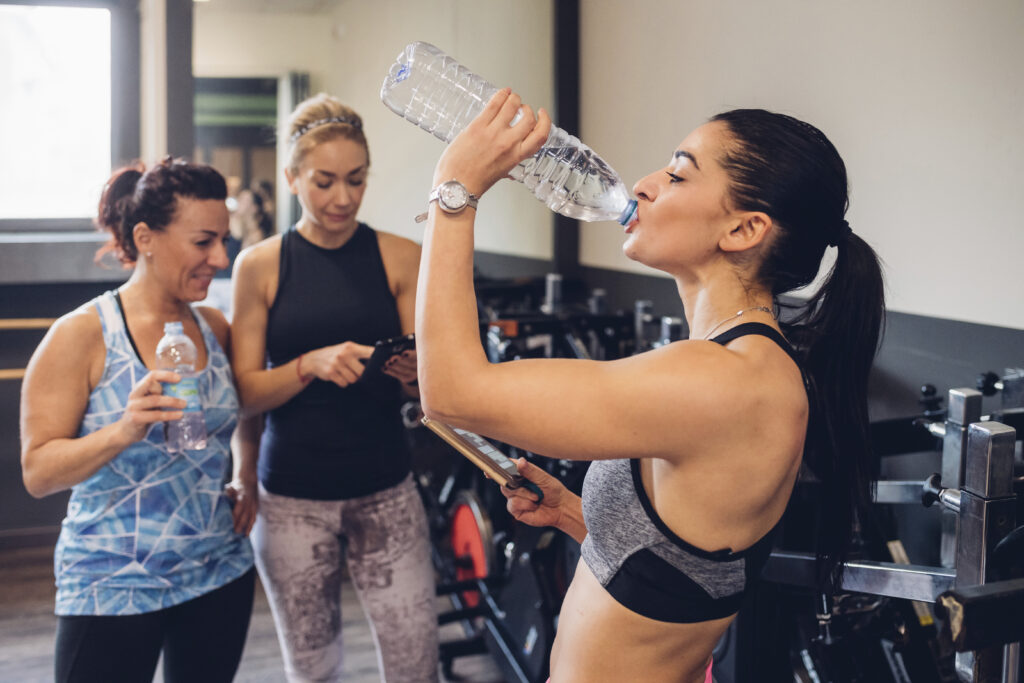Drinking water makes me bloated and unable to lose weight. Fact or fiction?

One of the common misconceptions in the world of health and fitness is the belief that drinking water can make you bloated and hinder your weight loss efforts. Many people fear that increasing their water intake will cause their bodies to retain more water, leading to bloating and a higher number on the scale. But is this concern fact or fiction?
Let’s dive into the truth about hydration and its impact on your body and weight loss goals.
The Role of Water in Your Body
Water is vital for almost every function in your body. It aids in digestion, helps regulate body temperature, supports nutrient absorption, and is essential for maintaining healthy skin, joints, and organs. When it comes to weight loss and overall wellness, proper hydration plays a crucial role.
Debunking the Bloat Myth
The idea that drinking water causes bloating and weight gain is a myth. In fact, the opposite is true. When you don’t drink enough water, your body tends to hold onto the water it does have as a protective mechanism. This is known as water retention, which can lead to that bloated feeling.
On the other hand, staying well-hydrated helps your body maintain a healthy balance of fluids. When your body knows it’s getting a steady supply of water, it’s less likely to retain excess fluid, reducing the chances of bloating. Additionally, water helps with digestion and can prevent constipation, which can also contribute to bloating.
Water and Weight Loss
Hydration is not just about quenching your thirst; it’s also a key player in weight management. Here’s how water helps with weight loss:
- Boosts Metabolism: Drinking water can temporarily boost your metabolism, helping your body burn calories more efficiently. Studies have shown that drinking about 17 ounces of water can increase your metabolic rate by up to 30% for about an hour. This means that staying hydrated can actually help you burn more calories throughout the day.
- Aids in Exercise Performance: Proper hydration is crucial for high-performance workouts. Dehydration can lead to fatigue, reduced endurance, and decreased strength, making your workouts less effective. By staying hydrated, you ensure that your body is performing at its best, allowing you to burn more calories and achieve better results.
- Promotes Satiety: Drinking water before meals can help with satiety, the feeling of being full. This can prevent overeating and help you control your calorie intake. Often, our bodies can mistake thirst for hunger, leading us to eat when what we really need is a glass of water.
How Much Water Should You Drink?
So, how much water should you be drinking to support your weight loss and overall health? A general guideline is to aim for about 8-10 glasses of water a day, or around 2 liters. However, individual needs vary based on factors such as body weight, activity level, and climate.
A more personalized approach is to drink half of your body weight in ounces. For example, if you weigh 150 pounds, you should aim to drink about 75 ounces of water daily. Remember, if you’re exercising or in a hot climate, you’ll need to increase your intake to stay properly hydrated.
The belief that drinking water causes bloating and impedes weight loss is a complete fiction. In reality, proper hydration is essential for your body to function optimally and to support your weight loss goals. By drinking enough water, you can reduce bloating, enhance your workout performance, and manage your weight more effectively.
So, the next time you reach for a glass of water, remember that it’s not just keeping you hydrated; it’s also helping you on your journey to better health and fitness. Embrace hydration as a key component of your weight loss strategy, and enjoy the benefits of a well-hydrated body.
